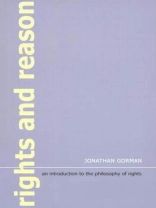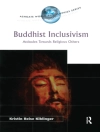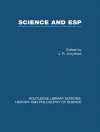He begins by contrasting the ideas of Plato, Hobbes, and Locke and their appeal to reason with the empiricism of Hume, showing that the issue of whether rights can express independent authoritative standards is inseparable from the longstanding conflict between empiricism and rationalism. By examining Kant’s attempt to resolve this conflict he shows that Kant changed our understanding of morality, and of rights in particular, by basing his philosophy on an analysis of human language. An outline of Hohfeld’s analysis of the language of rights and duties completes the examination of rights and reason. Gorman goes on to investigate some substantive criteria for the application of concepts of rights, including the beneficiary view of a right, group rights, non-human rights, the nature of the "individuals" who are the bearers of rights, the "interest" theory of rights, and the "will" theory. Finally he examines the view that rights and duties are mutually supporting features of a just situation, introducing Rawl’s theory of justice. Throughout Gorman shows that, alongside arguments about the content of rights and the myriad claims to rights, there are pluralities of theories that offer some understanding of the moral and legal realm and of the places that rights may hold in it.
Jonathan Gorman
Rights and Reason [PDF ebook]
An Introduction to the Philosophy of Rights
Rights and Reason [PDF ebook]
An Introduction to the Philosophy of Rights
ซื้อ eBook เล่มนี้และรับฟรีอีก 1 เล่ม!
ภาษา อังกฤษ ● รูป PDF ● หน้า 241 ● ISBN 9780773582101 ● สำนักพิมพ์ MQUP ● การตีพิมพ์ 2003 ● ที่สามารถดาวน์โหลดได้ 3 ครั้ง ● เงินตรา EUR ● ID 5836808 ● ป้องกันการคัดลอก Adobe DRM
ต้องใช้เครื่องอ่านหนังสืออิเล็กทรอนิกส์ที่มีความสามารถ DRM












